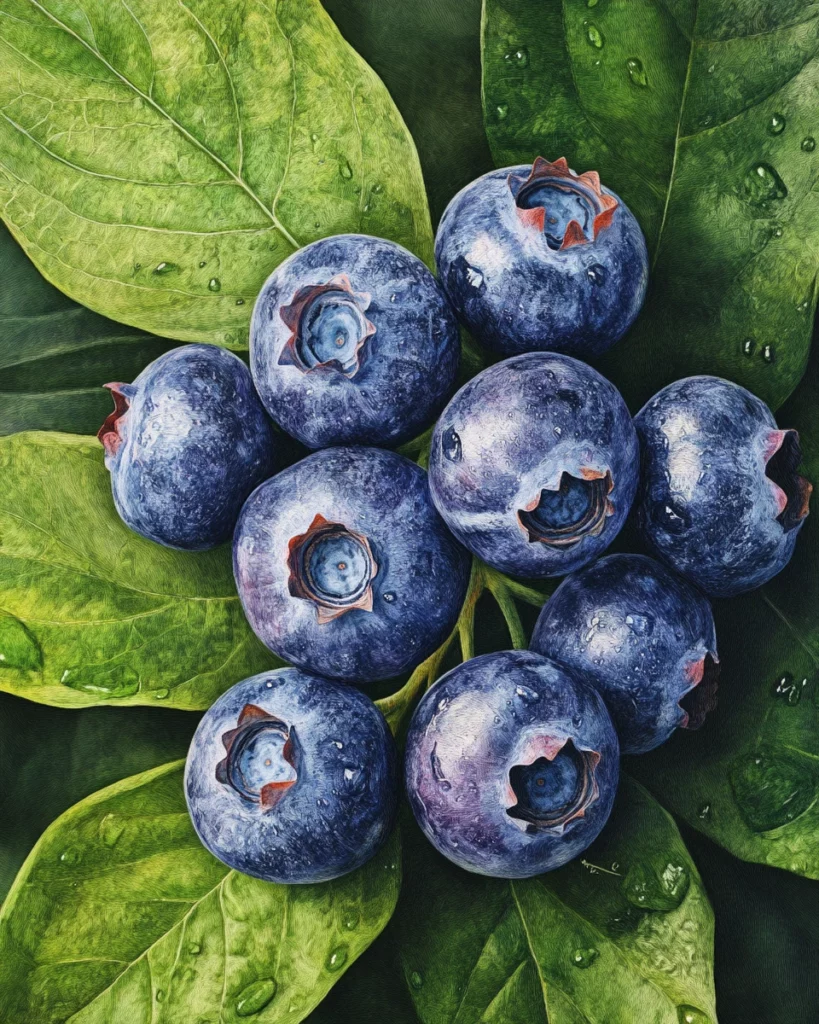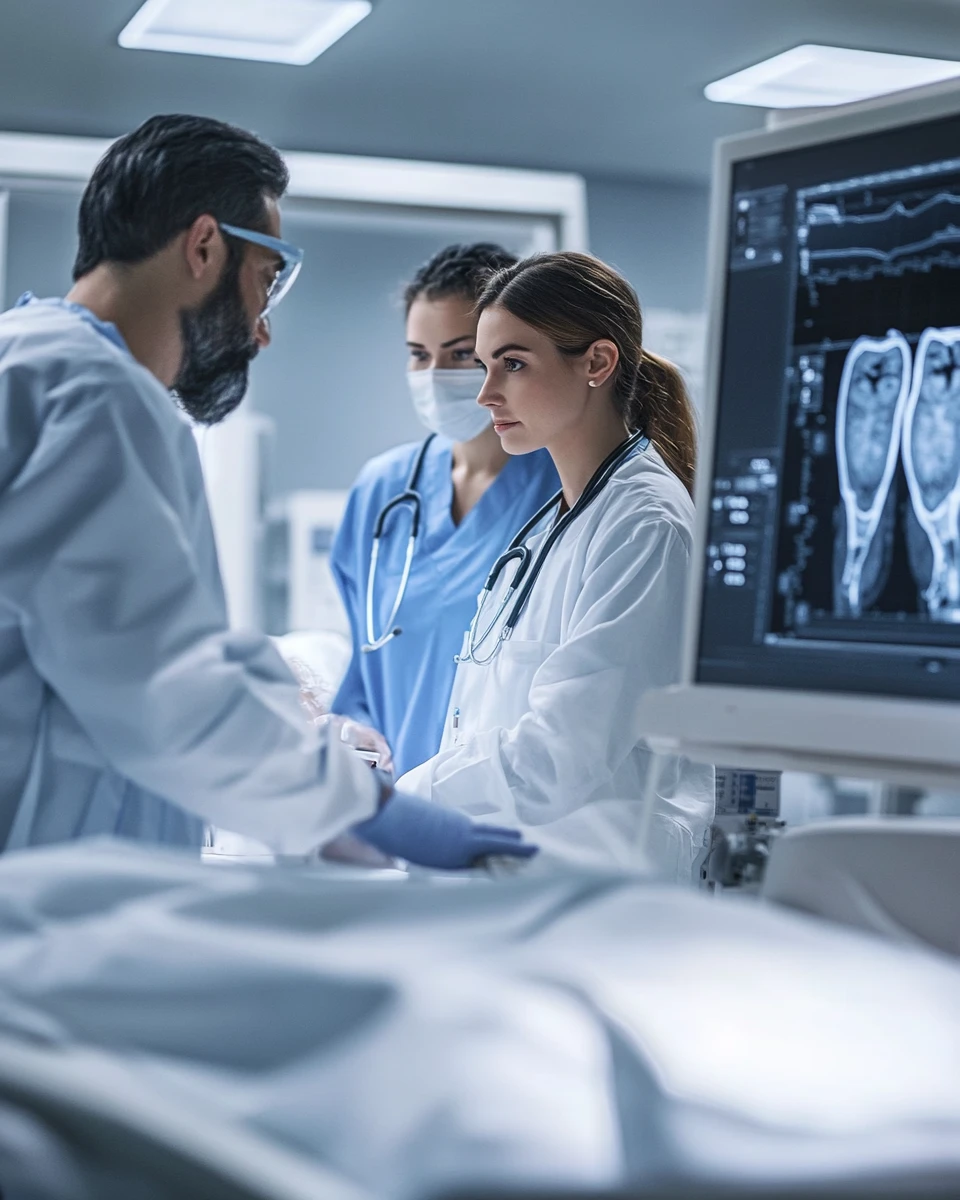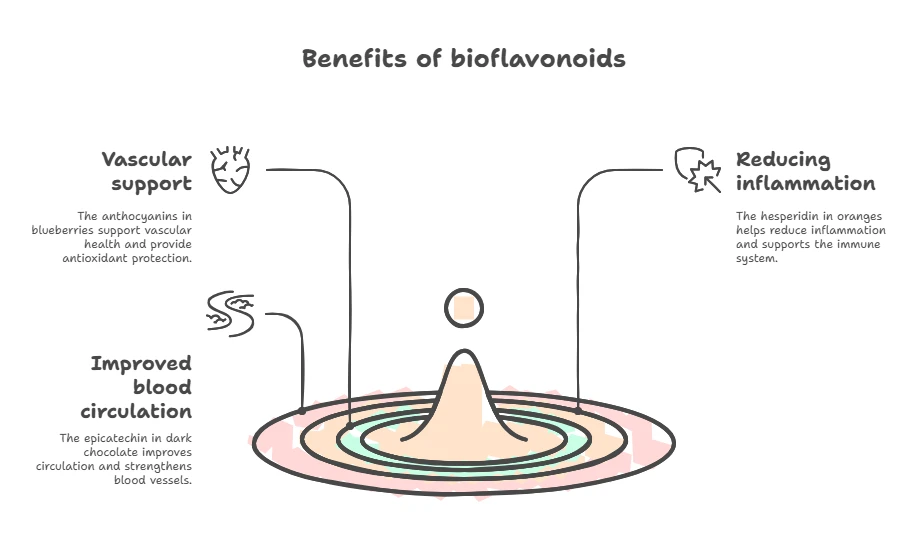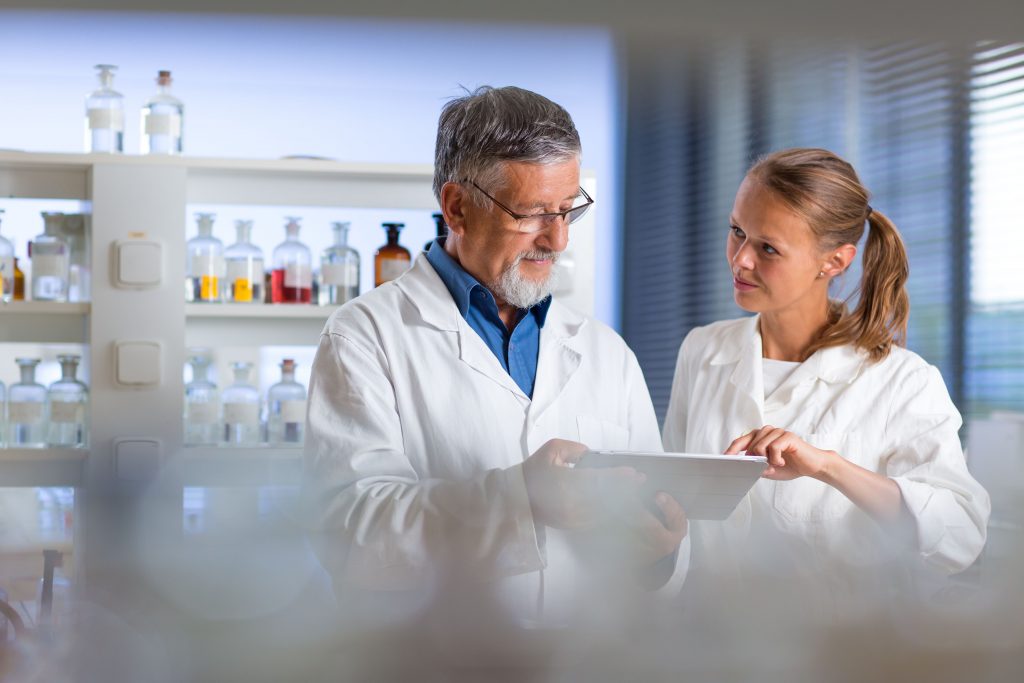

Bioflavonoids are a group of natural substances widely distributed in plants. They play an important role in maintaining human health with their powerful antioxidant properties.
One of the most significant effects of bioflavonoids is their impact on vascular health and the cardiovascular system.

In this article, we will look at how bioflavonoids affect the body’s antioxidant defenses and vascular health, as well as what research supports their beneficial properties.

What are bioflavonoids?
Bioflavonoids are a group of water-soluble plant pigments that include flavonoids, flavanones, flavanones, anthocyanins, catechins and other compounds.
They have strong antioxidant effects that help reduce oxidative stress, protect cells from damage, and maintain vascular health.
Bioflavonoids enter the body with plant foods such as fruits, vegetables, nuts and berries.
Effect of bioflavonoids on antioxidant defense
Oxidative stress is a major cause of chronic diseases such as cardiovascular disease, diabetes and cancer.
Bioflavonoids can neutralize free radicals, thereby reducing the risk of disease.
Some studies show that bioflavonoids, such as quercetin and resveratrol, help improve the body’s antioxidant system and reduce inflammation, which is especially important for maintaining vascular health.
Research example: According to a study published in the journal Antioxidants in 2020, flavonoids have a pronounced effect on reducing oxidative stress and inflammation, which helps strengthen blood vessels and prevent diseases associated with vascular damage (Zhao et al., 2020).

Bioflavonoids and vascular health
Bioflavonoids affect vascular health in several ways. They help improve blood circulation, strengthen blood vessel walls, and reduce “bad” cholesterol.
Some bioflavonoids, such as quercetin, may improve vascular elasticity, which is especially important for the prevention of hypertension and atherosclerosis.
Research example: Research published in the journal Nutrition Reviews in 2019 found that regular consumption of flavonoids can reduce the risk of cardiovascular disease by 10-15% by improving vascular functional status and responsiveness (Bondonno et al., 2019).

Foods rich in bioflavonoids
In order to maximize the benefits of bioflavonoids, it is important to include foods that contain these substances in your diet. Such foods include:
- Berries (blueberries, raspberries, strawberries)
- Citrus fruits (oranges, lemons)
- Green tea
- Dark chocolate
- Nuts and seeds

Below is a table with foods rich in bioflavonoids and their health benefits:
| Product | Main bioflavonoid | Health benefits |
|---|---|---|
| Blueberries | Anthocyanins | Vascular support, antioxidant protection |
| Orange | Hesperidin | Reducing inflammation, supporting the immune system |
| Dark chocolate | Epicatechin | Improving blood circulation, strengthening blood vessels |
Recommendations
To maintain vascular health and improve antioxidant defense is recommended:
- Include foods rich in bioflavonoids in the diet.
- Reduce saturated fat intake and increase fiber intake.
- Engage in regular physical activity to improve circulation.
- Consult a physician before starting bioflavonoid supplements, especially for people with chronic diseases.
Conclusion
Bioflavonoids are important components of plant foods that have a significant impact on vascular health and the body’s antioxidant defense.
They help reduce oxidative stress, improve vascular elasticity and reduce inflammation.
Including these substances in the daily diet can significantly improve quality of life and reduce the risk of cardiovascular disease.
Literature:
- Zhao, C., Zhang, H., & Zhang, Q. (2020). The role of flavonoids in the regulation of inflammation and oxidative stress. Antioxidants, 9(7), 657-667.
- Bondonno, C. P., Blekkenhorst, L. C., & Croft, K. D. (2019). Flavonoid-rich foods and cardiovascular risk factors: A systematic review. Nutrition Reviews, 77(10), 722-734.




